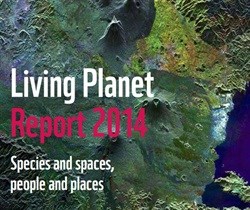
Freshwater species have suffered a 76% decline, an average loss almost double that of land and marine species. The biggest recorded global threats to biodiversity are habitat loss and degradation, fishing and hunting, and climate change.
At the same time, the ecological footprint continues its upward climb. Taken together, biodiversity loss and an unsustainable footprint threaten natural systems and human well-being, but can also point us toward actions to reverse current trends.
"Biodiversity is a crucial part of the systems that sustain life on earth - and the barometer of what we are doing to this planet, our only home. We urgently need bold global action in all sectors of society to build a more sustainable future," said WWF International director general, Marco Lambertini.
Enormous burden<>/b
"Being among the top ten most biodiverse countries in the world, South Africa has an enormous burden of responsibility," WWF South Africa CEO, Dr Morné du Plessis, said. "Yet, indications are that urbanisation in Africa will double by 2050 and, with it, more reliance on our natural resources. This makes it imperative that we be vigilant and proactive about tangible and sustainable solutions. Business as usual will not stop the decline."
Globally, humanity's demand on the planet is more than 50% greater than what nature can renew, meaning it would take 1.5 earths to produce the resources necessary to support our current ecological footprint. Human population growth is the primary factor that is driving footprint rises in Africa. The continent's population has surged in recent decades, but its per capita footprint has remained essentially unchanged.
With world population expected to exceed 9.5 billion by 2050, understanding the implications on food, energy and water security is essential. In research cited by the report, half of all future population growth is expected to occur in just eight countries, six of which are in Africa.
"Nature is both a lifeline for survival and a springboard to prosperity. We all need food, fresh water and clean air - wherever in the world we live. At a time when so many people still live in poverty, it is essential to work together to create solutions that work for everyone," said Du Plessis.
Download the full Living Planet Report 2014.